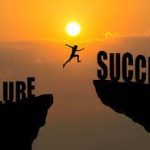“If you are tuned out of your own emotions, you will be poor at reading them in other people.” – Daniel Goleman
One of the more popular topics in leadership today is emotional intelligence, or EQ. You can find a lot of definitions of EQ, but a simple one is this: EQ is the ability to recognize and understand emotions in yourself and others AND using that understanding to make decisions, solve problems, and communicate with others. That’s kind of a mouthful, and it’s incredibly important.
I’ve noticed in a number of recent conversations that when people talk about EQ in leaders it’s quite often outwardly focused. In other words, it’s focused on the part of that definition where you’re considering others’ emotions and how to positively impact those around you. That’s great, and absolutely worth focusing on.
It’s important, though, that we don’t lose sight on the other part of that definition – the part about ourselves. Before we can really say we have a high level of EQ and that we’re using our EQ to positively impact our environment, we have to understand ourselves. For most of us, that’s the hard part.
Observing behaviors or emotions in others isn’t necessarily easy, but it’s usually easier than recognizing those kinds of things in ourselves. All of our wants, needs, fears, etc., cloud our own self-perception. Sometimes we want to ignore things that don’t feel good and we end up with huge blind spots, and other times we’re so focused on things that make us feel bad that we end up missing the good stuff.
Self-awareness is incredibly difficult. And while we should work hard to better recognize what’s going on inside ourselves – a lifelong journey, for sure – in the meantime, we need to ask for help. As a leader, one of the most valuable things you can have is somebody or a group of somebody’s around you who aren’t afraid to help you honestly self-assess. That someone could be a friend, a family member, or a peer or associate at work.
Do you have someone like that? Is there somebody in your life or career that sees you more clearly than you see yourself and is willing to share what they see? Do you make a point to seek that person out and ask for help? Is their feedback a regular part of your self-renewal and growth?
Great leaders understand the importance of EQ, and they understand that no matter how hard they try, their level of EQ will never be perfect. They understand that they need help from others, and they go get it. Who will help you?





